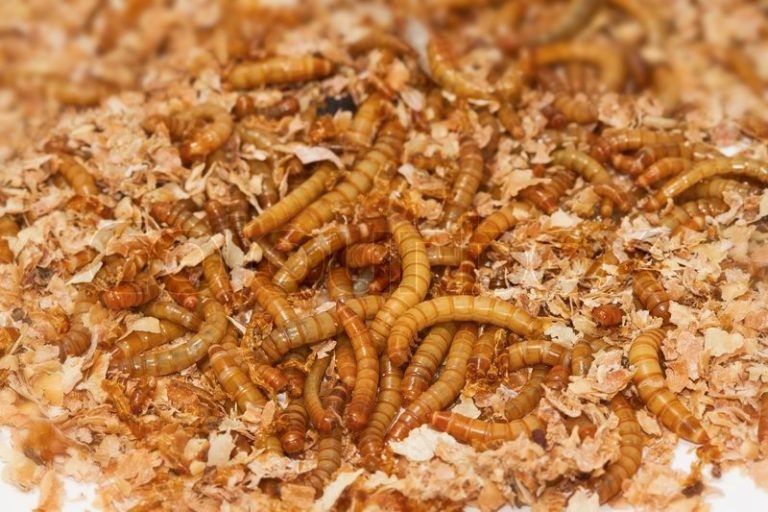Sugar Glider Calcium Supplement
Do Sugar Gliders Need a Calcium Supplement?
If you’re a sugar glider owner, you may have wondered if your furry friend needs a calcium supplement. Calcium is an important mineral for sugar gliders, as it plays a crucial role in maintaining healthy bones and teeth. In this article, we’ll explore the topic of sugar glider calcium supplementation in more detail to help you make an informed decision for your pet.
The Importance of Calcium for Sugar Gliders
Calcium is an essential mineral required by all animals, including humans and sugar gliders. It is vital for the development and maintenance of strong bones and teeth, as well as other important bodily functions. Sugar gliders, in particular, need proper calcium levels to support their rapid growth during infancy and to prevent health issues like metabolic bone disease, which can lead to weakened bones and deformities.
Calcium Sources in a Sugar Glider’s Diet
In the wild, sugar gliders obtain calcium through a varied diet that consists of insects, tree sap, nectar, pollen, and even small vertebrates. These natural food sources provide a balanced calcium-to-phosphorus ratio, which is crucial for proper absorption of calcium in the body. However, in captivity, it can be challenging to replicate the diversity of their natural diet, leading to a potential calcium deficiency.

Commercial Sugar Glider Diets
Many sugar glider owners rely on commercially available diets, which are designed to provide a balanced nutritional profile for their pets. These diets often contain added calcium, negating the need for additional supplementation. However, it’s essential to choose a reputable brand that meets the specific dietary requirements of sugar gliders.
Fresh Fruits, Vegetables, and Insects
In addition to commercial diets, it is crucial to offer fresh fruits, vegetables, and insects to your sugar glider. These food items not only provide additional nutrients but also contribute to the calcium intake. Calcium-rich foods such as kale, collard greens, broccoli, and mealworms can help ensure your sugar glider receives an adequate amount of this mineral.
Calcium Supplements for Sugar Gliders
While a well-rounded diet should suffice for most sugar gliders, there may be instances where calcium supplementation is necessary. This includes breeding females, growing juveniles, and older gliders, who may require an extra boost of calcium. Additionally, sugar gliders that have been diagnosed with calcium deficiencies by a veterinarian may also benefit from calcium supplements.
Choosing a Calcium Supplement
If you decide to provide your sugar glider with a calcium supplement, it’s crucial to choose the right one. Look for a product specifically formulated for sugar gliders or small mammals, as these will contain the appropriate dosage and ratio of calcium and other essential nutrients. Avoid using supplements intended for other animals, as they may not meet a sugar glider’s specific dietary needs.
Administering Calcium Supplements
Administering calcium supplements to sugar gliders can be done in various ways. Most commonly, powdered calcium supplements are sprinkled on their regular food. Some supplements are flavored to entice the gliders to consume them willingly. Always follow the recommended dosage instructions provided by the manufacturer, and consult with a veterinarian if you have any concerns.
Frequently Asked Questions
1: How can I tell if my sugar glider has a calcium deficiency?
Signs of calcium deficiency in sugar gliders may include weakness, lethargy, tremors or seizures, poor appetite, and skeletal abnormalities. If you suspect a calcium deficiency, it’s important to seek veterinary care for a proper diagnosis.
2: Can I give my sugar glider too much calcium?
Yes, over-supplementation with calcium can lead to health issues as well. Excessive calcium intake may lead to the formation of bladder stones or contribute to the development of kidney problems. It’s important to provide a balanced diet and consult with a veterinarian before starting any supplementation.
3: Are there natural sources of calcium for sugar gliders?
Yes, there are several natural food sources that contain calcium, such as kale, collard greens, broccoli, and mealworms. Offer these foods as part of a varied and balanced diet to help meet your sugar glider’s calcium requirements.
Final Thoughts
Ensuring your sugar glider receives an adequate amount of calcium is essential for their overall health and well-being. While a properly balanced diet should provide sufficient calcium for most sugar gliders, some may require additional supplementation based on their age, reproductive status, or individual health concerns. It’s important to consult with a veterinarian who specializes in exotic animals to determine the best course of action for your sugar glider’s specific needs. By providing a well-rounded diet and meeting their calcium requirements, you can help your sugar glider live a happy and healthy life.







